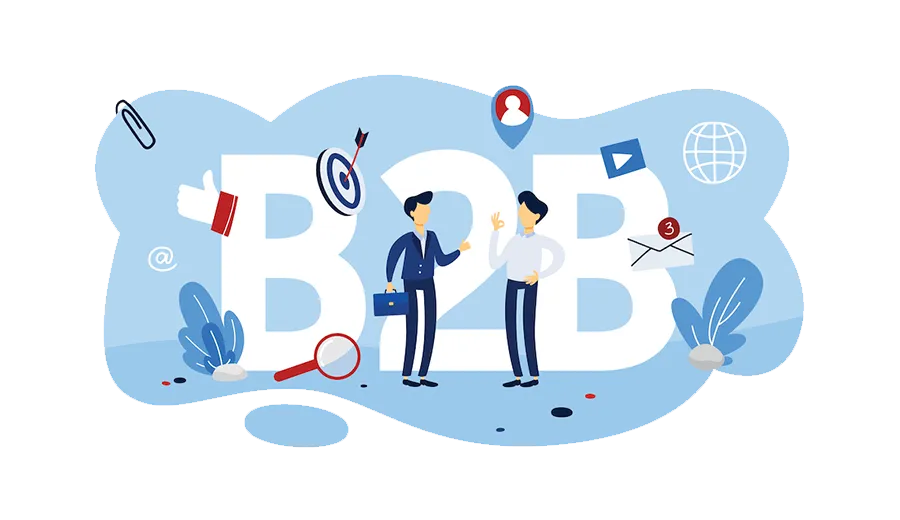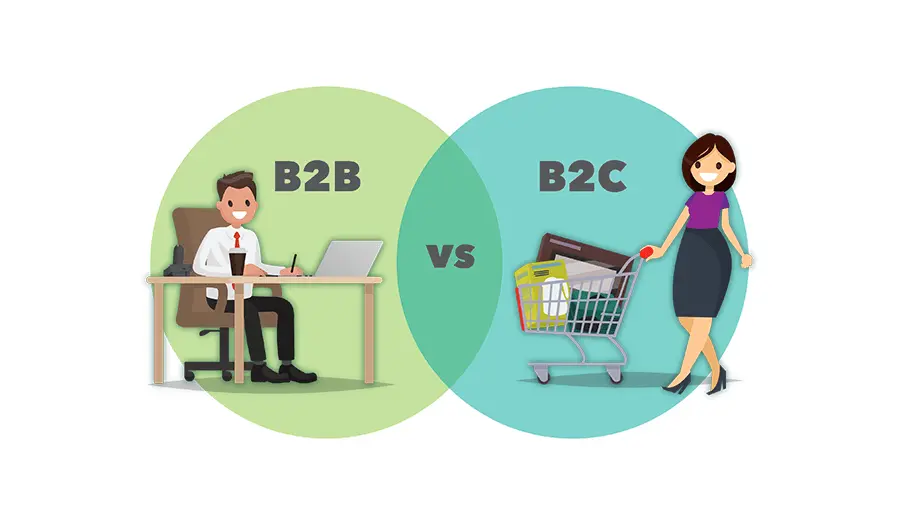Water purification is a process that is mainly used to eliminate the contamination present in the water and makes water safe for human consumption. Water being a natural solvent, can dissolve almost everything in it, due to which water becomes home to various kinds of disease-causing agents. These pathogenic agents can harm your health and may cause some severe diseases.
Water is one of the fundamental needs of human beings. It participates in almost all human body functions like it promotes digestion of food, helps remove body waste, supports blood circulation, and improves brain functions. Thus one should consume an insufficient amount regularly. According to various medical professionals, one should regularly drink 2-3 liters of water.
These days due to urbanization and various human activities, the freshwater quality is getting contaminated, and this is a matter of big concern because to live a healthy lifestyle, drinking pure water is essential as this supports our immune system and make it a strong and healthy immune system protect us from various kinds of the foreign invader.
Drinking contaminated water causes various kinds of waterborne diseases, which can be fatal if not treated properly on time, thus avoid drinking contaminated water. According to the UN report India's rank in 120th among 122 nations, the freshwater quality in India is inferior and not safe for human consumption as it is highly contaminated by various kinds of dissolved salts and microbes.
A water purification process can eliminate all kinds of physical, chemical, and biological contamination present in the water and ends the human struggle for getting contamination-free water. Below is a list of some of the impurities which the water purification process can eliminate-
1. Leads
2. Zinc
3. Chromium
4. Bacteria
5. Virus
6. Parasites
7. Copper
8. Magnesium
9. Fungus
10. Unpleasant odor
The water purification process aims to bring pure and healthy water that can fit for specific purposes like drinking, medical & pharmaceutical uses, chemical, and the industrial revolution. Using various technologies and methods, a water purification process reduces total dissolved salts, bacteria, viruses, fungi, and other contaminants.
Water Purification Process Overview
A water purification process is mainly based on 3 methods which are listed below
- Preliminary Treatment- This water purification method is used to eliminate grit like particles present in the water
- Primary Treatment – Primary water purification method is mainly used to eliminate the physical contamination present in the water, and it is typically done by screening, Multi-media filtration, and others
- Secondary Treatment- This process is mainly used to eliminate suspended particles by using a biological process
- Tertiary Treatment- It is a chemical process that is used for final treatments
Methods Of Water Purification Process
There are various water purification process methods below. We have listed some of the best and required forms of the water purification process to help you get 100% contamination-free water irrespective of the water source.
#1. Boiling
It is one of the most primitive and cost-effective ways of water purification. In this process, water is allowed to boil for 15-20 minutes, and then it is allowed to cool at an average temperature. Previously it was one of the most effective ways to purify water as it eliminates microbes present in the water.
#2. Filtration
Any physical, chemical, and biological process used to separate solid from the fluid by adding a medium is filtration. In this process, the medium used to separate the solids from the fluids only allows fluids to pass through it. This water purification method is one of the active techniques among all the water purification methods.
#3. Disinfection
This water purification method is mainly used to destroy microbial contamination present in the water. A disinfection process can be done by various techniques like adding the disinfectant chemical. The disinfection process can be achieved by chlorine, chlorine dioxide, chloramine, ozone, and UV, i.e., Ultraviolet rays.
Importance Of Water Purification
Today we can’t deny the importance of clean and healthy drinking water.
Are we right???
Can you deny it??
Not!!!
No one can deny the importance of pure and contamination-free water.
Why??
Ohh, it means you want us to explore the reason
Okay. Let’s start
Clean water is free from all kinds of contamination and pathogens, and water with no or less water contamination is good for health. We all know water is a natural solvent, and being a natural solvent, it can dissolve almost everything, which makes water pathogenic.
Drinking raw water may act as a vector for disease-causing agents, which can be fatal for us. It may cause severe health issues or diseases, so be careful every time you drink water and keep an eye on its quality.
Below we’ve listed some of the crucial advantages and importance of the water purification process, so read it till the end.
1. Keeps The Environment Safe & Clean
See, we all try to consume pure water, and there are multiple ways to get contamination-free water.
But, Wait
Are your water purification method harming the atmosphere????
Be sure. Otherwise, you end up polluting other natural resources like soil and air.
Each time you drink water, think about your water quality and methods to get contamination-free water.
We're living in a technologically advanced era. With the invention and advancement in technology, getting pure water becomes easier than, but some people use package bottle water.
If you’re also using bottled water to get clean water for drinking, then somewhere you're contributing to the other natural resources.
Yes, Bitter, but the truth.
Packed water bottles are made of plastic that doesn't decompose and is very little recycled, so you drink pure water in exchange for several damages to the natural resources.
So, THINK ABOUT IT while buying your next packed bottle of water.
2. Preventive Against Cancer-Causing Agents
As we have mentioned, water is a natural solvent, and it can dissolve almost everything. And this is the reason water contains a huge concentration of minerals, salts, and other chemicals, and sometimes these chemicals can be carcinogenic, so be careful when you sip water next time.
Practicing drinking contamination-free water is crucial for health, and it is also a good habit to live longer and healthier.
Don’t be worried
It is the 21st century, so anything is possible.
And here, a water purification system can be helpful for you.
Why???
Because a water purification system punches out all the contamination present in water, it is both a cost-effective and time-saving method.
So, now you can eliminate your raw water impurities smoothly and efficiently. And it also enables you to ignore consuming carcinogenic agents.
Various water purification methods are available, making contamination-free water access easier and cost-effective.
3. Ensure 100% Pure & Healthy Drinking Water
Since a water purification system eliminates all forms of contamination in water, you can trust it to get 100% pure and healthy water. A water purification system has several stages and filters for water purification that eliminate all sorts of water contamination.
Different water purification systems are used depending on the nature and concentration of water pollutants, so be careful while choosing your water purification methods.
4. Eliminate Chlorine From The Tap Water
However, chlorine is used in water to kill bacteria, fungus, and other micro-organisms, but an excess concentration of chlorine in water causes various kinds of health issues, so it is necessary to eliminate chlorine from water.
Don't worry; it is too easy. YES, various water purification methods quickly eliminate even a single chlorine molecule from water.
5. Cost-effective Process
Are you concerned about your drinking water quality but also worried about its cost?? Don't worry, you live in the 21st century where almost everything is done by advanced technology.
Yes, technology has made water purification easier than ever, so having a water purification system guarantees you 100% pure and contamination-free water and ensures that you will get purified water at a very low cost.
6. Helpful In Avoiding Constipation
Do you experience constipation regularly?
Yes, Ohh, you should check drinking water quality. And make sure it is 100% safe and hygienic.
Why?? Water is crucial for food digestion, and constipation mainly occurs due to the indigestion of foods.
When you drink a sufficient amount of pure & healthy water, proper digestion of food ultimately resolves digestive issues. So this is another importance of the water purification process.
Types Of Water Purification
However, there are various kinds of water purification, and in the above section, we've discussed more different kinds of water purification processes and methods. Here in this section, we'll be discussing various types of water purification systems.
A water purification system is of various types, but here we will discuss its most crucial and widely accepted form which are
Now, Let’s start discussing these two widely accepted water purification systems.
Water Purifier
A water purifier is used globally to eliminate the contamination present in the water. This water purification system eliminates all kinds of water impurities like TDS and microbial contaminants. And this is the reason water purifier has to gain the trust of the vast population globally.
A water purifier has undergone various updations, which has made it much more effective against all kinds of impurities. Below are the few technologies mainly used in the water purifier to make it effective.
1. Reverse Osmosis Technology
In this technology, water is allowed to pass through a semipermeable membrane against the concentration gradient. This technology works utterly opposite to pure osmosis. The semipermeable membrane used in the water purifier contains several tiny pores which don't allow water impurities to pass through it. This is the resulting water becomes contamination-free and safe for consumption.
Although a water purification system based on reverse osmosis technology eliminates dissolved chemicals and microbes present in water, it is broadly used in areas where the TDS concentration is higher than the other contaminations.
2. UV Technology
A UV water purifier is based on UV rays. This water purification unit eliminates microbial contamination and makes the water safe for human consumption. A UV ray has a high penetration powder that kills and suspends microbes present in the water and makes it safe and suitable for human consumption.
Due to high penetration powder, UV rays penetrate the microbial cell and destroy their genetic material. As a result, microbes lose their ability to grow and reproduce; thus, water becomes safe from microbial contamination. A UV technology-based water purification system can only eliminate microbial contamination from the water, but it can't treat other kinds of impurities. As a result, this kind of water purification is only suitable for those areas where microbial contamination is comparatively higher than different kinds of contamination.
3. UF Technology
A water purification system based on UF technology is suitable for eliminating dissolved salts present in water. UF water purification system works precisely the same as RO water purifier, but it has one significant difference, and that is a UF water purifier eliminates slightly higher molecular-sized particle as a semipermeable membrane used in UF water purification system are having slightly higher pore size as compared to the RO membrane.
4. Alkaline Technology
This is one of the advanced water purification technologies mainly used to balance water's pH. Pure water has 7 pH, but the presence of some impurities in water makes it acidic as a result, water becomes unsafe for human consumption. Water having pH 6.5 to 8.5 is considered safe. Alkaline water purification technology maintains its pH and makes it safe for human consumption.
Water Softener
A water softener is mainly used to eliminate the hardness of the water. Calcium and Magnesium salt make water hard in nature, and the use of hard water makes it unsafe for human health, washing, and cleaning.
Water treated by a water softener is not suitable for drinking purposes. A water softener only replaces Calcium and Magnesium salts from water with sodium, but it doesn't eliminate any impurities; thus, water remains unsafe for consumption.
A high concentration of Calcium & Magnesium salts in hard water makes it inappropriate for washing, cleaning, and bathing. As salts of these compounds block soap's foaming action, thus leaving a stain on clothes. While bathing, these salts get deposited on the scalp, leading to hair fall and causing several skin diseases.
Which Chemical Are Used To Purify Water?
Multiple chemicals are used to treat contamination present in the water, but below, we have listed some of the crucial chemicals commonly used to purify water.
- Chloramines
Pure chlorine molecules are used to eliminate the contamination present in the water. Chloramines are one of the chlorine-like chemicals used on a large scale to purify water. Although it is toxic if not used properly. This chemical is mostly used to treat municipal water to eliminate the microbial contamination present in the water.
- Chlorine Dioxide
This is another break of Chlorine which is also used to purify water at a large scale. But most people avoid using chlorine dioxide as it releases volatile gas. Along with this, the use of Chlorine dioxide also increases the level of Chlorine in water higher than the normal/healthy level recommended by the United States Government.
- Hydrogen Peroxide
This is another chemical that is used to treat water contamination. Hydrogen peroxide combines with formic acid to eliminate the microbes like protozoa and other harmful pathogens present in water. But it is less efficient than chlorine as hydrogen peroxide requires more time to purify water.
Which Is The Best Technology For Water Purification?
With the advancement in technology, everything has become modernized. The use of the latest technology-based water purification system shows that we are dependent on technology, from entertainment to our fundamental needs. Various water purification technologies eliminate even the tiniest impurities present in water.
Also Read- 10 Best Water Purifier For Home In India (2022) | Review And Buying Guide
RO, UV, UF are the water purification technology widely used to treat water contamination. All of these techniques have their advantages and disadvantages. An RO, i.e., reverse osmosis water purification technology, is mainly used to eliminate TDS from the water. However, it also eliminates microbial contamination, but this technology-based water purification system is suitable for those areas where the TDS concentration is comparatively high.
A UV, i.e., Ultra-filtration technology-based unit, is used to eliminate microbial contamination from the water, and this technology only eliminates microbial contamination but no other, so it is mainly used in those are where the microbial contamination is high compared to the TDS concentration of the water.
A UF technology-based water purification system eliminates large-sized molecules present in the water. The UF membrane used has a slightly larger pore size, eliminating larger molecules from the water. This technology is also suitable for microbial contamination removal.
You may need RO Service in these Cities:
RO Service in Muzaffarpur | RO Service in Darbhanga | RO Service in Katihar | RO Service in Chapra | RO Service in Saharsa | RO Service in Hajipur | RO Service in Sasaram | RO Service in Dehri | RO Service in Siwan | RO Service in Sitamarhi | RO Service in Purnia | RO Service in Nalanda | RO Service in Saran | RO Service in Munger | RO Service in Vaishali | RO Service in Rohtas | RO Service in Banka | RO Service in Bhabua | RO Service in Bodh Gaya | RO Service in Khagaria | RO Service in Madhepura | RO Service in Madhubani | RO Service in Maharajganj | RO Service in Samastipur









